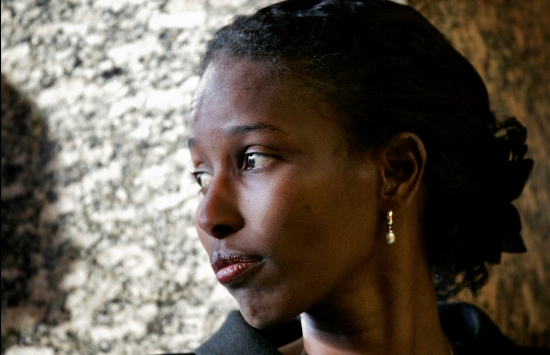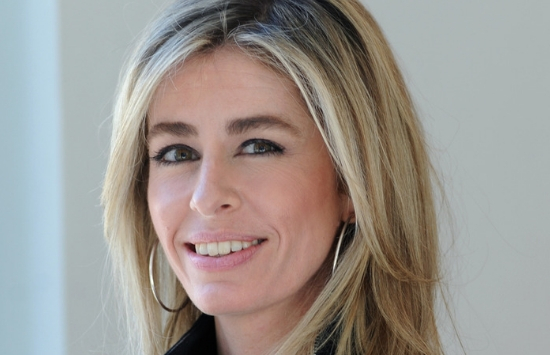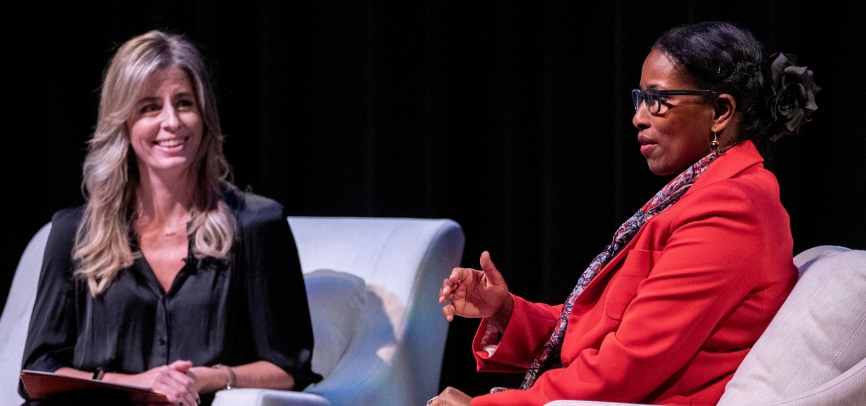
Ayaan Hirsi Ali was born in Mogadishu, Somalia, in 1969. The daughter of a political
opponent of the Somali dictatorship, Hirsi Ali grew up in exile, moving from Saudi
Arabia to Ethiopia then Kenya.
As a young child, she was subjected to female genital mutilation. As she grew up,
she embraced Islam and strove to live as a devout Muslim, but she began to question
aspects of her faith. One day, while listening to a sermon on the many ways women
should be obedient to their husbands, she couldn't resist asking, "Must our husbands
obey us too?"
In 1992, Hirsi Ali was married off by her father to a distant cousin who lived in
Canada. In order to escape this marriage, she fled to the Netherlands where she was
given asylum, and in time citizenship. In her early years in Holland she worked in
factories and as a maid. She quickly learned Dutch, and was able to study at the University
of Leiden. Working as a translator for Somali immigrants, she saw at first hand the
inconsistencies between liberal, Western society, and tribal, Muslim cultures.
After earning her master of arts in political science, Hirsi Ali worked as a researcher
for the Wiardi Beckman Foundation in Amsterdam. She then served as an elected member
of the Dutch parliament from 2003 to 2006. While in parliament, she focused on furthering
the integration of non-Western immigrants into Dutch society and on defending the
rights of Muslim women. She campaigned to raise awareness of violence against women,
including honor killings and female genital mutilation, practices that had followed
the immigrants into Holland. In her three years in government, she found her voice
as an advocate for an "enlightened Islam."
In 2004, Hirsi Ali gained international attention following the murder of Theo van
Gogh. Van Gogh had directed her short film Submission, a film about the oppression
of women under Islam. The assassin, a radical Muslim, left a death threat for her
pinned to Van Gogh's chest.
In 2006, Hirsi Ali had to resign from parliament when the then Dutch minister for
immigration decided to revoke Hirsi Ali's Dutch citizenship, arguing that Hirsi Ali
had misled the authorities at the time of her asylum application. However, the Dutch
courts later confirmed that Hirsi Ali was indeed a legitimate Dutch citizen, leading
to the fall of the government. Disillusioned with the Netherlands, she subsequently
moved to the United States.
She is now a fellow with the Future of Diplomacy Project at the Belfer Center for
Science and International Affairs, and a visiting fellow at the American Enterprise
Institute. She has to live with round-the-clock security. Her willingness to speak
out and her abandonment of the Muslim faith have made her a target for violence by
Islamic extremists.

Charity Wallace is the founder and principal of Wallace Global Impact, a consulting
firm that combines policy expertise with extensive experience to drive innovative
and effective solutions to improve the lives of people around the world, particularly
women and girls. During the Bush Administration, Wallace served all eight years in
the White House in various positions, most notably as the deputy chief of protocol
for the United States and director of advance for First Lady Laura Bush. Following
her tenure in the Administration, Wallace served as Laura Bush's chief of staff and
founded and led the Global Women's Initiatives at the Bush Institute in Dallas, Texas.
Wallace graduated magna cum laude in political science from Pepperdine University,
and received her master's degree in international relations from the Fletcher School
of Law and Diplomacy at Tufts University.


